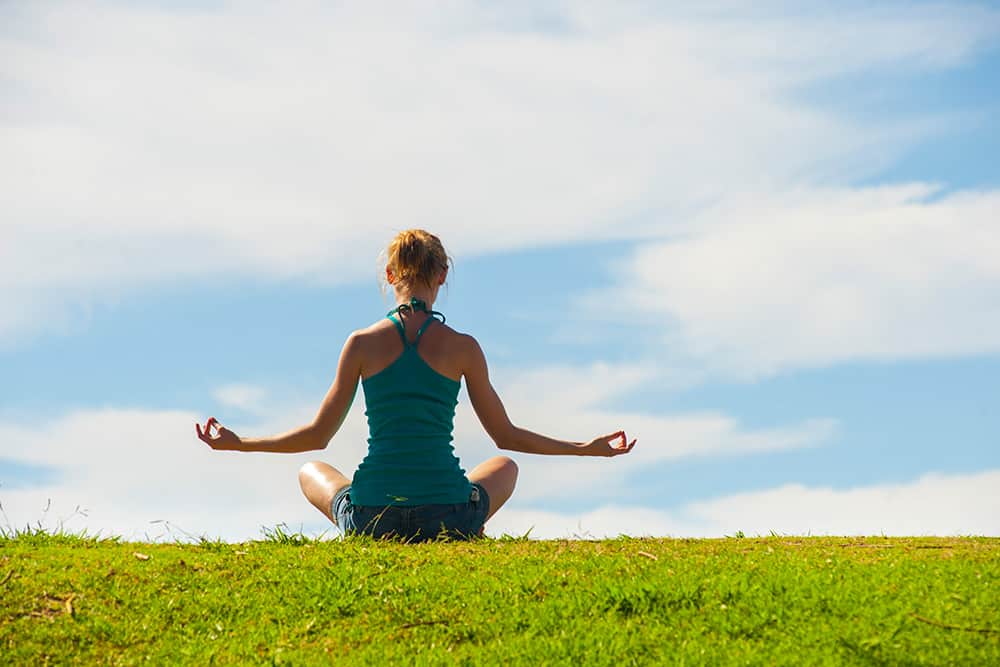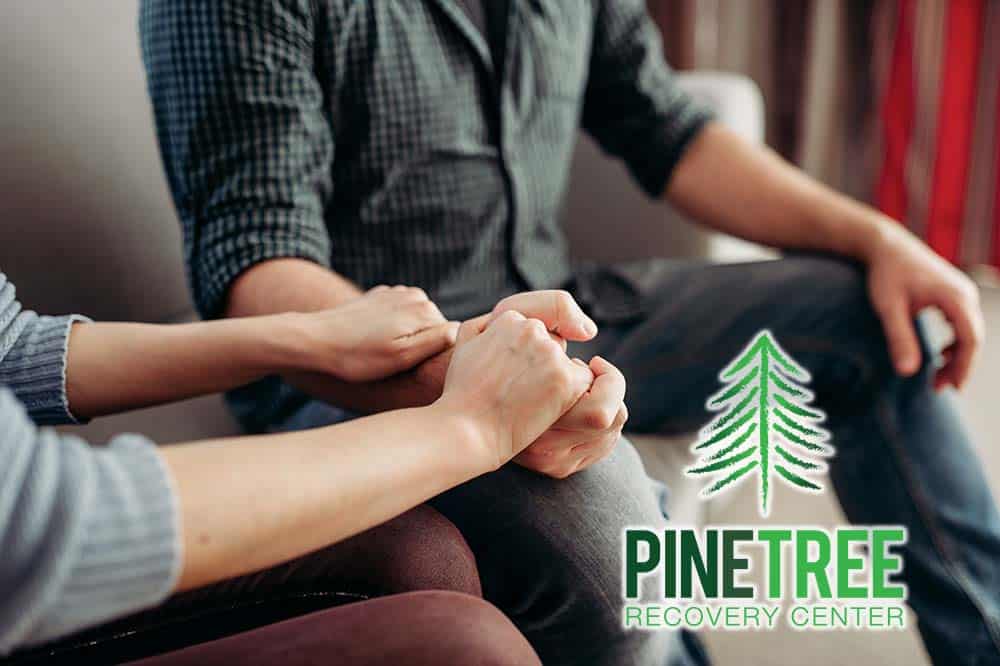Holistic addiction treatment is an approach that views addiction as a complex issue that involves the entire person – body, mind, and spirit. This type of treatment recognizes that addiction is often the result of underlying emotional, psychological, and physical issues and aims to address those issues in addition to treating the addiction itself.
In holistic addiction treatment, the focus is on treating the whole person rather than just the addiction. This means that in addition to traditional addiction treatment methods like detoxification and counseling, holistic programs may include interventions like acupuncture, meditation, yoga, and other complementary therapies.
By treating the underlying issues that contribute to addiction, holistic treatment aims to help individuals achieve lasting recovery and improve their overall well-being. Additionally, many individuals find that the holistic approach helps them better manage stress and anxiety, which can be key triggers for relapse.
If you or someone you love has a substance use disorder, Pine Tree Recovery is available to help. We are dedicated to providing the most comprehensive and individualized medically monitored detox program. To learn more about our programs, contact us today.
What Is Holistic Addiction Treatment?
Holistic addiction treatment addresses addiction’s physical, emotional, and spiritual aspects. Pine Tree Recovery is an addiction treatment center offering a holistic treatment program. Their program starts with a thorough assessment to determine the underlying causes of addiction, allowing their treatment team to create a personalized treatment plan for each individual.
Pine Tree Recovery believes successful recovery involves treating the whole person, not just the addiction. Therefore, their holistic approach includes a combination of traditional and alternative therapies designed to address addiction’s physical, mental, and emotional aspects. They offer evidence-based therapies, such as cognitive-behavioral and complementary, mindfulness-based, yoga, and meditation.
In addition, Pine Tree Recovery also provides alternative therapies, such as acupuncture, massage therapy, and chiropractic care. These therapies can help individuals manage addiction withdrawal’s physical and emotional symptoms, reduce stress, and improve overall well-being.
Pine Tree Recovery’s holistic addiction treatment approach aims to help individuals achieve lasting recovery by addressing the underlying issues contributing to addiction and promoting overall well-being.
What Is Holistic Addiction Treatment?
Holistic addiction treatment addresses addiction’s physical, emotional, and spiritual aspects. Pine Tree Recovery is an addiction treatment center offering a holistic treatment program. Their program starts with a thorough assessment to determine the underlying causes of addiction, allowing their treatment team to create a personalized treatment plan for each individual.
Pine Tree Recovery believes successful recovery involves treating the whole person, not just the addiction. Therefore, their holistic approach includes a combination of traditional and alternative therapies designed to address addiction’s physical, mental, and emotional aspects. They offer evidence-based therapies, such as cognitive-behavioral and complementary, mindfulness-based, yoga, and meditation.
In addition, Pine Tree Recovery also provides alternative therapies, such as acupuncture, massage therapy, and chiropractic care. These therapies can help individuals manage addiction withdrawal’s physical and emotional symptoms, reduce stress, and improve overall well-being.
Pine Tree Recovery’s holistic addiction treatment approach aims to help individuals achieve lasting recovery by addressing the underlying issues contributing to addiction and promoting overall well-being.
We Are Here For You
Healing the Mind & Body as a Whole in a Portland, Maine Treatment Program
Recovery involves addressing addiction’s negative impacts on a person’s physical, psychological, and spiritual well-being. Addiction often leads to malnourishment, weakened physical health, and worsening symptoms of mental illness, causing individuals to feel disconnected from the world around them.
At Pine Tree Recovery, we understand the vast implications of addiction and offer a holistic program that addresses the body, mind, and spirit. Our program integrates holistic treatment approaches throughout the detox and residential phases, providing clients with a comprehensive approach to recovery. By taking small steps towards recovery, clients can regain control of their lives and work towards achieving personal goals. We aim to help clients heal and develop skills to maintain long-term sobriety.
Integrating Alternative Therapies in Substance Abuse & Addiction Treatment
Integrating alternative therapies into substance abuse and addiction treatment has gained popularity. While traditional forms of addiction treatment, such as medication and talk therapy, may not be effective for everyone, alternative therapies offer additional options for those seeking recovery.
Alternative therapies encompass a range of modalities, such as yoga, meditation, art therapy, and acupuncture. These therapies aim to treat the person’s physical, emotional, and spiritual aspects, recognizing that addiction is a complex disease that impacts all aspects of an individual’s life. Additionally, alternative therapies can help manage co-occurring mental health issues like stress, anxiety, and depression.
Alternative therapies can be used alongside traditional addiction treatment or as standalone approaches. Some treatment centers may include yoga or meditation as part of their program, while others may have a dedicated alternative therapy wing.
Integrating alternative therapies into substance abuse and addiction treatment can assist individuals in developing coping skills, managing stress, and promoting overall well-being. By treating the whole person, alternative therapies play a crucial role in recovery beyond just addressing the addiction.
Nutrition & Exercise & Their Role in Holistic Addiction Recovery
Holistic addiction recovery recognizes the importance of proper nutrition and exercise in the recovery process. Addiction can significantly impact an individual’s physical health, and a healthy diet and regular exercise can help restore the body’s strength and vitality.
Malnourishment is a common issue for those struggling with addiction, and it can lead to a weakened immune system, decreased energy levels, and other health problems. Healthy foods like fruits, vegetables, whole grains, and lean proteins can help counteract these effects and provide the body with the nutrients it needs to function optimally.
Exercise is essential to holistic addiction recovery as it can help improve mood, reduce stress and anxiety, and promote better sleep. Regular physical activity can also stimulate the production of endorphins, natural feel-good chemicals that can help reduce cravings and improve overall well-being. Integrating exercise into a daily routine can help individuals in recovery feel better physically and mentally, improving their chances of achieving lasting recovery.
How Meditation & Mindfulness Can Aid in Finding Inner Peace
Healing can be achieved through powerful tools such as meditation and mindfulness. By focusing on the present moment, both practices can help reduce anxiety and stress and increase self-awareness and emotional regulation.
Meditation involves intentionally focusing the mind on a particular object or sensation, such as the breath or a mantra, to calm the mind and reduce distractions. Research has shown that regular meditation practice can improve cognitive function and emotional regulation and reduce symptoms of anxiety and depression.
Conversely, mindfulness involves intentionally paying attention to the present moment without judgment or distraction. It helps to cultivate awareness of thoughts and emotions and develop a compassionate and accepting attitude toward oneself and others.
Integrating meditation and mindfulness into addiction recovery programs can help individuals manage cravings, reduce stress and anxiety, and improve emotional well-being. By incorporating these practices into a holistic approach to addiction recovery, individuals can gain a greater sense of inner peace and emotional well-being.
Our Drug & Alcohol Detox Services Include
The Effectiveness of Art & Music Therapy
Incorporating art and music therapy into addiction recovery programs can positively impact individuals’ emotional and physical well-being. These forms of therapy provide a safe outlet for self-expression and can help individuals process and cope with their emotions.
Art therapy involves using art materials and techniques to explore feelings and experiences nonverbally, which can be particularly beneficial for those who struggle with verbal communication. Research has shown that art therapy can help reduce symptoms of anxiety and depression, as well as improve overall well-being.
Similarly, music therapy uses music for emotional and physical healing, helping individuals manage stress, improve mood, and enhance communication and social skills. It has also been helpful for individuals with chronic pain or physical limitations and those experiencing depression, anxiety, or PTSD.
By integrating art and music therapy into addiction recovery programs, individuals can access alternative forms of self-expression to aid in their recovery journey and promote overall well-being.
Healing Through Nature Utilizing Outdoor Activities
Pine Tree Recovery recognizes the healing power of nature in addiction recovery. Individuals can connect with nature and find a sense of calm by engaging in outdoor activities such as hiking, camping, and nature walks. Pine Tree Recovery understands that spending time outdoors can help reduce symptoms of anxiety and depression, common co-occurring disorders with addiction. A serene environment can have a calming effect on the mind and body.
Incorporating outdoor activities into addiction recovery can also help individuals build self-esteem, confidence, and a sense of purpose. Physical activities like hiking and rock climbing provide opportunities to challenge oneself beyond perceived limitations, fostering resilience and personal growth. Pine Tree Recovery’s holistic approach to addiction treatment includes outdoor activities like hiking, yoga, and meditation to complement traditional therapies and provide a comprehensive approach to recovery.
Holistic Approaches to Relapse Prevention
Comprehensive addiction treatment approaches focus on the individual’s overall well-being, encompassing their mind, body, and spirit, and can effectively prevent relapse. Below are some of the holistic approaches used for relapse prevention:
- Mindfulness Practices – Mindfulness practices like meditation can help individuals increase their self-awareness and self-regulation abilities. This can be particularly helpful in preventing relapse triggers, which are often linked to stress, negative emotions, and other internal factors.
- Self-Care – Self-care is a crucial aspect of holistic addiction recovery. It involves caring for one’s physical, emotional, and spiritual needs. Engaging in healthy activities, such as exercise, healthy eating, and meditation, can help individuals reduce stress levels and improve their overall well-being.
- Alternative Therapies – Alternative therapies, such as yoga, acupuncture, and massage therapy, can also effectively prevent relapse. These therapies can help individuals manage cravings, reduce stress, and improve mood.
- Support Networks – Building a strong support network is vital to addiction recovery. This can include attending group therapy sessions, participating in 12-step meetings, and cultivating relationships with sober friends and family members.
- Continued Treatment & Aftercare – Holistic addiction treatment is an ongoing process, and individuals must continue to engage in self-care, mindfulness practices, and other holistic approaches to maintain their sobriety. Aftercare programs like outpatient therapy or sober living arrangements can provide ongoing support and accountability.
Ready To Begin Your Drug & Alcohol Detox?
We Offer A Safe & Effective Program
Don’t let Drug & Alcohol addiction control your life.
Call us today and let’s get you started on the path to a better you.
Focusing On Healing Trauma & Its Connection to Recovery
Addiction can often have its roots in trauma, and unresolved trauma can hinder recovery efforts. That’s why addressing and healing any underlying trauma is essential for addiction recovery. Holistic approaches to recovery recognize the link between trauma and addiction and emphasize the importance of addressing both.
One effective approach to healing trauma in addiction recovery is therapy specifically targeting trauma, such as EMDR (Eye Movement Desensitization and Reprocessing) or trauma-focused cognitive-behavioral therapy. These therapies can help individuals process and release traumatic memories, emotions, and beliefs that contribute to addiction and hinder recovery.
In addition to targeted therapy, holistic addiction recovery may incorporate activities promoting emotional healing, such as mindfulness meditation, yoga, or journaling. These activities can help individuals connect with their emotions and develop healthy coping mechanisms to manage them.
By addressing and healing trauma as part of addiction recovery, individuals can break free from the cycle of addiction and build a strong foundation for long-term recovery.
Finding Meaning, Connection, & Purpose Through Spirituality in Holistic Addiction Treatment
Holistic addiction treatment recognizes that spirituality is vital in helping individuals find meaning, connection, and purpose. Many people who struggle with addiction experience a sense of emptiness or disconnection, which can lead them to use substances to cope. By integrating spiritual practices into treatment, individuals can explore their values, beliefs, and a sense of purpose, which can be crucial for achieving and maintaining recovery.
Spiritual practices may include activities such as meditation, prayer, and yoga. These practices allow individuals to become more present and mindful, which can deepen their self-awareness and connection to the world around them. Additionally, spiritual practices can foster greater compassion for oneself and others, which is critical for building healthy relationships and a sense of community.
For some individuals, spirituality may involve connecting with a higher power or participating in a specific religious tradition. For others, spirituality may involve simply exploring one’s values and beliefs. Regardless of the specific practices involved, incorporating spirituality into addiction treatment can be an effective way to help individuals find meaning and purpose in their lives.
Begin Healing Now!
Have A Call With One Of Our Treatment Advisors
Don’t Suffer Any Longer
Contact Us Today to Learn More
Contact us today if you or your loved one is ready to begin an entirely new way of life and commit to long-term recovery. As soon as you call, we start developing a plan of action that begins with an initial pre-assessment. This assessment helps us determine the most appropriate level of care for each unique case. We identify potential coverage options if our medically monitored detox program is a good fit. We work closely with most major regional and national insurance providers. Contact us today for a free, no-obligation insurance benefit check.

Reviewed for accuracy by:
Randi Bruneau
LCSW, LADC, CCS
Randi is a Licensed Clinical Social Worker and Licensed Alcohol and Drug Counselor and Supervisor who has over 20 years of experience in the field of mental health and addictions. She has worked in both clinical and administrative leadership roles and also has extensive career experience in gender specific trauma treatment, crisis intervention, structural family work and substance use disorder treatment and supervision.























